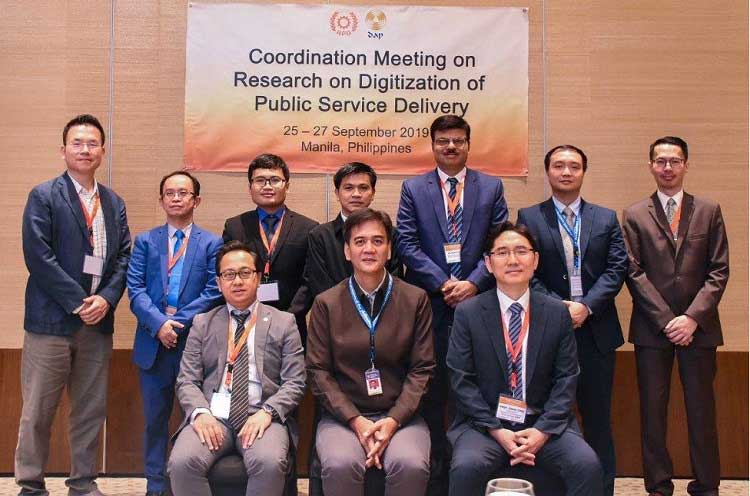
Select Page
 With the objective of assessing the various models and initiatives adopted by member countries to digitize their public sectors, the APO has started a research project on Digital Public Service Delivery for Smart Government. In addition to the focus on assessment through case studies in five selected member countries, the research will propose a set of recommendations for improving digitization strategies to be referred to by governments for increasing the efficiency of public service delivery. Another research output will be a regional outlook report on the status of smart government in the Asia-Pacific, particularly in the area of public service delivery.
With the objective of assessing the various models and initiatives adopted by member countries to digitize their public sectors, the APO has started a research project on Digital Public Service Delivery for Smart Government. In addition to the focus on assessment through case studies in five selected member countries, the research will propose a set of recommendations for improving digitization strategies to be referred to by governments for increasing the efficiency of public service delivery. Another research output will be a regional outlook report on the status of smart government in the Asia-Pacific, particularly in the area of public service delivery.
A research coordination meeting was held in collaboration with the Development Academy of the Philippines, 25–27 September 2019 in Manila. It was attended by the chief expert from the Republic of Korea (ROK) and national experts from India, Indonesia, the ROK, Philippines, and Thailand. They agreed that the focus of the country studies would be divided into smart welfare, smart villages, smart disaster management, open data, and integrated digital welfare services. The final outcome of the research will be published by July 2020, followed by a series of dissemination activities for targeted stakeholders.
The concept of digital government involves multiple transformations, and it is necessary to identify how they are related not only to gains in efficiency but also to other improvements in delivering public services such as increased citizens’ trust and engagement and ensuring openness. Many initiatives to incorporate digital government services have been launched in APO member countries. However, the current research emphasis is on people-driven methods allowing governments to create digital platforms for engagement with all stakeholders in offering public services. This approach is distinctive from previous attempts to design citizen- or government-centered frameworks to upgrade service delivery since different levels of digital readiness will be assessed before suggesting practical recommendations for adopting smart government solutions.